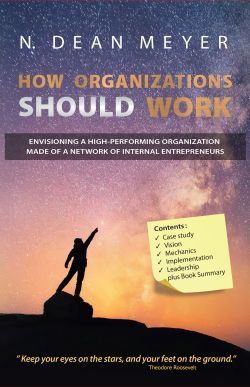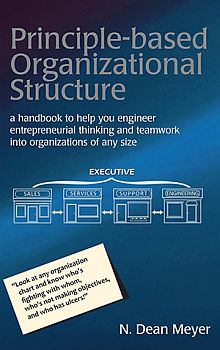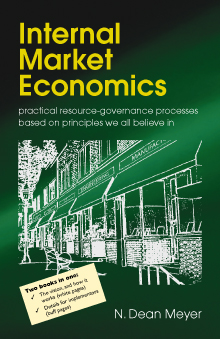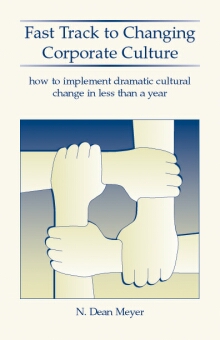| Excerpt from www.NDMA.COM, © 2026 N. Dean Meyer and Associates Inc.
Abstracts: NDMA Organizational Design Topics
snippets of topics with links to resources
Vision "Keep your eyes on the stars, and your feet on the ground." What Teddy Roosevelt meant by stars, in the context of organizations, is your vision of the end-state organization -- of how your organization should work. We propose a vision based on two pillars:
This website can help you craft your own leadership vision, your blueprint for the organization you intend to build. RESOURCES:
Case study: transformation based on a clear vision
Organizational Transformation "If you get your organizational strategy right, your entire organization will take care of business strategies forevermore." Organizational strategy is more fundamental than business strategies. And it's more lasting.... A great leader leaves the legacy of an organization that can succeed, with or without her. Organizational strategy establishes a clear vision of the end state, and then plans a series of changes in the organizational "ecosystem" -- the system of influences that guide staff. Each step solves pressing problems and improves the organization's performance; and together, they add up to your vision of a high-performing organization. RESOURCES:
Use case: innovation
Organizational Structure and Cross-boundary Teamwork "Look at any organization chart and know who's fighting with whom, who's not making objectives, and who has ulcers!" Structure is not a matter of intuition, fads, or personalities. It's an engineering science, with firm principles and constructs. And there's more to structure than just an organization chart. Cross-boundary teamwork processes must be designed into the structure, or else the best structure will revert into silos of self-sufficient generalists. A well-designed structure induces specialization and competence, teamwork, accountability for results, innovation, and performance in every function within the organization. RESOURCES:
Use case: shared-services versus decentralization
Resource Governance Processes "We all believe in market economics in the real world. So, why do we drop our common sense when we walk in the office door!?" Resource-governance processes include budget planning, demand management (prioritization), and financial reporting. They determine your budget, and executives' understanding of what they can expect for a given level of funding. They also build trust through transparency, facilitate alignment, and can be transformative for your staff. An effective system of resource-governance doesn't have to be bureaucratic when it's designed around principles of market economics. (And by the way, it does not require internal chargebacks.) RESOURCES:
Organizational Culture "Some say it takes a generation to change corporate culture. Not true! With a behavioral approach, you can accomplish major change in less than a year." Organizational culture is a mixture of two related things: (1) values/attitudes/beliefs/feelings, and (2) behaviors/habits/practices. As a leader, you can't tell people what to value or how to feel. But you certainly have every right to define expected behaviors. Clear, actionable behavioral principles can be taught, modeled, and measured, leading to rapid culture change. RESOURCES:
Executive Coaching "Sometimes you need someone other than your team and your boss to talk with, because sometimes you need to talk about them." An executive coach is someone with whom you can discuss sensitive issues, openly and confidentially. Like successful atheletes, many top executives use coaches to step above the fray, look at challenges in new ways, and think through their options. Dean's focus is unique: His coaching focuses on organizational, political, and leadership issues. His perspective and advice are grounded in the business-within-a-business paradigm. This helps you tune all your strategies, actions, policies, and language based on a consistent vision of the end-point: provider of choice to your customers, and employer of choice to your staff. RESOURCES:
Use case: new job entry strategy
|






